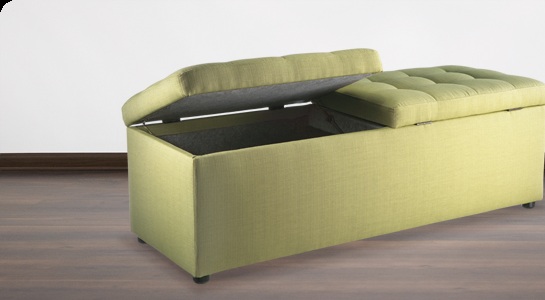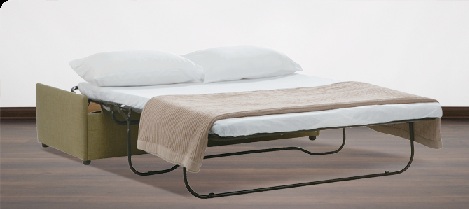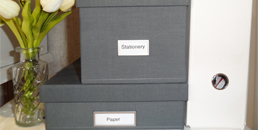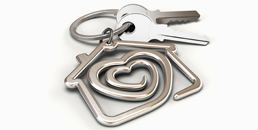by Natalie Morey | Nov 8, 2012 | Declutter tips, Home Organisation, Tips
Storing Magazines
I love my monthly subscription to Gourmet Traveller, but after a couple of years I’ve started to collect quite the pile of magazines. I often (and when I say often, I mean every couple of weeks) refer back to them as I love cooking and searching for new inspirations so I don’t necessarily want to throw them out, but I need to organise and store them differently.
Declutter your Magazines
Firstly, you need to do a cull. As professional organisers, our job is to go into clients homes and help organise their rooms. I am forever telling clients that there is only so much professional organising we can do. To get the most impact you often need to reduce down the amount of “stuff” that you have first, in order to get the most out of the organising sessions and the space.
Organise your Magazines
My first tip is to turn your magazines into a feature of your living room. Sort your mags into date order and group accordingly to the different publications. Then, lay them flat and put the biggest ones on the bottom of the pile and smaller ones on top. During this process you may decide to cull ones that you know you won’t refer to again.
Or alternatively, you may cut out recipes/articles that you think you will use, place them in a labelled folder and throw the rest out. Remember to recycle them too.
Place your pile of mags (about 40cm high) on the floor, perhaps next to your sofa or wall and then place a picture frame or little ornament on them. Your once pile of messy mags now takes on a whole new designer look.
For the serious magazine hoarder, this may not work, so you may need to look for different storage options.
You can also use cardboard magazine holders. You can get a great range of colours from places like kikki-k and Officeworks. Group your magazines by title and then order by month. Don’t forget to label the magazine holders accordingly.
Every 6 – 12 months you will need to do a cull. Some people like the method whereby when you purchase a new mag, you have to throw one out. It really comes down to how often you will refer back to them, how much space you have and how many magazines you have collected.
Happy magazine organising.
Natalie Morey
Professional Organiser
by Natalie Morey | Nov 1, 2012 | Declutter tips, Home Organisation, Tips
Are You Organized for Christmas?
If you are anything like me, you will set up your Christmas tree on the 1st of December. Although I must say that I am having a bit of a dilemma this year. We move house on the 18th of December! Hmmm do I put the tree up on the 1st or the 18th of December? I think I might have to go for a mini tree this year, and perhaps upgrade to the full size Christmas tree on the 18th. Perhaps I can get the removalist to deliver our goods in the morning and have a tree delivered in the afternoon. I love the spirit behind Christmas and just could not go without having a tree. I also love the anticipation of getting ready for Christmas and with some forward planning, it does not have to be too stressful.
Christmas Organizing Tips
Everyone loves a beautifully decorated tree. My tip is to think about the colour schedule for your Christmas tree and decorations in advance. Good decorations always sell out first so a bit of forward planning will ensure your tree looks great and is colour coordinated.
Christmas Entertaining
Finalise any guest lists for Christmas lunch or other functions that you might be hosting. Then you can check and see if you are missing any crockery, cutlery and purchase it early. You know when you only have a setting for 8, but you have got 10 guests for lunch and at the last minute you are scrounging around to find an extra two table settings that look vaguely similar to the other eight ones. Yes, you know what I mean.
Christmas Pet and House Minding
If you have not already done so, book your pet minding services. Good suppliers book out early so this is really important.
If you are going away you may also need to start thinking about who can look after your house, water the plants and collect the mail, whilst you are gone. If you cannot get a friend or family member to assist, perhaps you could use the servicing of a company that will check up on your house, water the plants and collect the mail whilst you are on holidays. The Lifestylers Group do exactly that
Spare Christmas Presents
Stock up on a few spare presents. It might also be a good idea to pick up a few practical and versatile ones, “just in case” you need them.
Christmas Cards
We love receiving them, but somehow never get around to writing them.
Do you find that yet another Christmas has past and you didn’t get around to sending out your Christmas cards? Well this year, you can change that. Set yourself a goal. Perhaps your goal could be to write 2 cards a night, whilst you are sitting in front of the TV. Now when you put it like that, how could you not be organised this Christmas?
Happy Christmas Organising.
Natalie Morey, Professional Organiser.
by Natalie Morey | Oct 25, 2012 | Declutter tips, Home Organisation, Tips
Get Organised For Christmas
As a professional organiser, I love nothing more than planning for my Christmas. I started my Christmas shopping several months ago. I am always thinking about gifts that I can buy family and friends and great recipes that I can try. Now, I understand that not all people are that way inclined, so I have listed below some tips to help you start planning for the big day.
With only nine weeks to go before the big day, it’s time to start getting organised for Christmas. You can avoid the traffic mayhem, the parking challenges, the frustration of finding out that the perfect gift you wanted to buy is sold out by a little forward planning.
Christmas Organising
So with only 9 weeks to go until Christmas, the first thing I wanted to focus on is getting the house in order for all those extra guests or parties that you will be having.
First, review what maintenance needs to be done around the house like painting, repairs, pictures to be hung and those small annoying little maintenance issues etc. As it gets closer to Christmas it gets harder to get a good handyman or builder as they are all booked out, so book your handyman now.
Christmas Spring Cleaning
Secondly, if you have not finished your spring cleaning, now is the perfect time to finish it off. Now is the time to:
- Wash the windows inside and outside
- Get the carpet, blinds, sofa’s and upholstery cleaned
- Tidy up the garden
Decluttering The Spare Room
Thirdly, now is the perfect time to get the spare room organised. You can purchase some really nifty storage solutions that will look great in the spare room, whilst providing the perfect storage solution to contain all the clutter.

Image: from http://www.plush.com.au
Whether it is a computer cupboard that contains all the papers and mess, a storage bench, a fold-up bed that comes out from the wall or an ottoman that doubles as a pull out bed, you can find some versatile storage solutions.

Image: from http://www.plush.com.au
Perhaps you might need to purchase new linen, doona covers, pillows or matching towels. Plan to purchase these items soon, rather than the week before Christmas, when stock levels are low.
Now, look at what items are cluttering up the room. Think about the things and decide what should be thrown out, what can be donated to charity and what can be sold on eBay. If you plan your declutter well, find out when your next hard rubbish waste collection is and get rid of any unwanted furniture and avoid having to pay for rubbish removal or skip fees.
With a bit of forward planning and professional organising you can avoid many of those last minute stresses like trying to get your home ready for Christmas.
Happy Christmas Planning!
Natalie Morey
Professional Organiser.
by Natalie Morey | Oct 1, 2012 | Declutter tips, Home Organisation, Tips
Declutter to Downsize
Are you moving house? Are you downsizing. You may be in the situation that you just cannot take everything when you move so some things will need to go. So now is the perfect time to start the decluttering process, ready for your downsized home.
If you declutter early, the move will go so much smother. You won’t arrive at the new house with a ton on boxes that just won’t fit everywhere. You also won’t need to purchase additional storage for those excess items.
Here are some tips to help make the declutter and downsizing process easier.
Start Decluttering Early
Moving is stressful and emotions are high during this process. Take the time to carefully sort through your belongings early. As a professional organiser who has helped move hundreds and hundreds of clients, my number one tip is to start decluttering early. Don’t start the week before you move. I would recommend starting at least 3 months before you are going to move.
Don’t Forget to Downsize Your Kitchen
Moving to a smaller kitchen can be a challenge. Sometimes, just looking at the quantity of kitchen cabinets, appliances and dishes that you have will make you think downsizing is impossible. However, it is quite possible to move to a smaller home and a small kitchen and still have everything you need. As a professional organizer. We help many clients to do just that. It does take some organising and it takes time, but it can be done. For example, let’s say you have 8 coffee cups with your dinner set, 4 favourite mugs, several souvenir mugs and then theirs those other mugs that don’t match anything and just seem to accumulate. You need to ask yourself ‘when was the last time you served coffee to 22 people?’ Get my point.
Keep Only One
Many common kitchen items often have duplicates. Purge down to one colander, one set of measuring cups, one spatula, one set of tongs, and so forth. You will be amazed at just how many duplicate items you have.
Keep wall hangings, pictures and knick-knacks minimal. Only keep your favourite ones.
Sell Your Stuff – Don’t throw anything in the garbage
Recycle, reuse, sell and donate instead. As tempting and easy as it is to pitch wire hangers, old clothes and furnishings, be environmentally responsible and find a home for everything.
- For a large number of items, you might consider having a garage sale.
- If you have time before the move, you can sell items on eBay.
- Used designer clothing can be resold in consignment shops. These stores can be found in your local business directory. Be sure to shop around though, some stores offer better rates than others.
- Donate items to the Salvo’s or your favorite charity store.
Declutter Every Cabinet, Shelf and Wardrobe
Only put back the things you couldn’t live well without. You might have to be ruthless but there is no point in keeping items that you cannot display at your new home.
Measure Your Furniture
You will need to know how your furniture will (or won’t) fit into your new space – particularly large items such as your sofa, sidetable and your bed – so measure everything. This will often determine which items will and won’t fit and which items you need to get rid of.
Assess Your New Storage Areas
How many times have you moved into a new place only to realize – too late – that you have overestimated the amount of storage space you actually have. While you’re getting room measurements, make sure you properly assess your new storage situation. Will you have fewer kitchen cupboards? If so, how many. Then think about your current home and the number of cupboards that you have. Often you only see your new home for 15 minutes at an open for inspection and you don’t think to take notes of these sorts of things. I don’t know how many times clients have told me “Oh the place has got lots of storage” only to get there and find it doesn’t. How many wardrobes will you have? How many hanging sections does the wardrobe have? Often clients get caught out on this one also.
When you are decluttering to downsize you have to be a bit more ruthless than a normal declutter. Start early your decluttering, plan ahead and tackle one room at a time.
Until next time, happy organsing.
Natalie Morey, Professional Organiser
by Natalie Morey | Sep 30, 2012 | Declutter tips, Home Office, Home Organisation, Tips
Find a Place for Every Item – It helps keep you organised
How often do you come inside and just dump your bag and “stuff” on the bench or dining room table. The mail, handbag, the kids’ stuff. It all just goes on the bench. Before long, it becomes known as the “official dumping ground”, full of clutter and stuff. It then becomes habit for everyone else to put their stuff their too. You need to have a place for every item and you need to get into the habit of putting the items in their correct place straight away. Don’t double handle items.
Get Some Home Organisation “Containers”
Buy some small clear plastic containers (with lids), and use them to create kits where you can store all the items you need for a particular task. For instance, you could create a shoeshine kit, a bill-paying kit (think In-tray) and a container for all your batteries and so on. That way, you can easily find the things you need to accomplish your everyday tasks. By keeping things grouped together and organised it will save you time as you won’t need to spend time searching for missing items.
Dump Duplicates – and rid yourself of clutter
Why have two nonstick spatulas when one is enough? Why have three hairbrushes or 3 colanders. Throwing out duplicates is one of the easiest ways to stop clutter. A good rule to apply is “one in, one out”. When you get something new, it’s the perfect opportunity to get rid of something old. Before you bring home that big new flat-screen TV, figure out what you’re going to do with the current TV you already have. Having done this recently, I was surprised at just how hard it was to donate my old TV. It worked perfectly and I really didn’t want to put it into land fill. Often finding an organisation that can benefit from your items is good for two reasons. Firstly, you know it’s going to a good home and secondly it’s not going into land fill so it’s easier to get rid of things knowing this. So if you want to be organised you need to clear the clutter first.
Lost Keys
Are you always wasting time looking for your keys. I have done this for lots of clients and they love it. Put a hook right inside your front door. Every time you come home you hang your keys on the hook. It might take you a bit to remember to put the keys there every time you come in, but in no time it will become habit and best of all, you will always know where your keys are. You can also get some lovely hooks, so it does not have to become an eye sore.
Write a “to- do- list”
In a recent blog article, I wrote about the benefits of writing a to-do list.
They help us stay organized, get the most out of our day and ensure we complete everything that needs to be done. Here are the key tips that I mentioned:
- Write a “to–do” list the night before.
- Once on paper, you can plan, prioritise and get a system in place for managing your day.
- Make it achievable.
- Stick to your list.
- Tick off tasks when they are completed.
- Don’t procrastinate and allow yourself to get side tracked.
- Be time specific when you are writing your list and make sure you have a time frame as to when your tasks must be completed by.
- Get into the habit of writing a list every day. Once you are in the habit, you are half way there.
Until next time, happy organising.
Natalie Morey, Professional Organiser.





